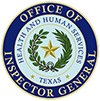Federal agencies offer tips to avoid coronavirus-related fraud
The uncertainty and fear surrounding the COVID-19 pandemic provide an ideal setting for criminals to take advantage of people searching for solutions. Several government agencies warn you to watch out for scammers wanting to take your money or personal information.
The U.S. Department of Health and Human Services Office of Inspector General released a public service announcement warning about the latest schemes. The OIG says scammers claim they can provide COVID-19 tests in exchange for personal information, including Medicaid or Medicare information. However, the services are fake and are simply a way to steal medical insurance information.
Scammers are targeting potential victims through social media, telemarketing calls, and home visits. HHS OIG offers these tips to protect yourself:
- Be cautious of anyone asking for your Medicaid number or other health insurance information.
- Be suspicious of any unexpected calls or visitors offering COVID-19 tests or supplies. If your personal information is stolen, it may be used in other schemes.
- Ignore offers or advertisements for COVID-19 testing or treatments on social media sites.
- A doctor or other trusted healthcare provider should assess your condition and approve any requests for COVID-19 testing.
Other warnings include the Justice Department taking action against a website claiming to provide a coronavirus vaccine. A legitimate COVID-19 vaccine isn’t available yet.
The U.S. Attorney’s Office is investigating the following illegal operations:
Supply shops: Criminals are creating websites and social media posts claiming to sell in-demand medical supplies, such as surgical masks. The fake shops take your money but never provide the supplies.
Provider claims: Scammers call or email a potential victim, pretending to be doctors and hospitals that have treated a friend or relative for COVID-19, and demanding payment for that treatment.
Fake charities: Scammers are asking for money for individuals, groups, and areas affected by the coronavirus.
Phishing: Scammers posing as the World Health Organization (WHO) and the Centers for Disease Control and Prevention (CDC) are sending phishing emails designed to trick people into downloading malware or providing personal and financial information. Don’t click links or open attachments you do not recognize. Phishing emails may also claim to be related to refunds for cancelled flights.
Harmful apps: Scammers are creating and tampering with mobile apps designed to track the spread of COVID-19; the damaged apps insert malware that will harm your electronic device and steal personal information.
Investment scams: Online promotions claim a publicly traded company’s product can prevent, detect or cure COVID-19, which will dramatically boost the company’s stock price. These fake promotions are often presented as research reports and predict a specific target price. The scams involve the low-priced stock of very small companies and make the false claims in an attempt to boost the price.
The FBI offers these security reminders to protect yourself against cyber criminals exploiting COVID-19.
- Don’t open attachments or click links from emails from senders you don't recognize.
- Don’t give your username, password, birth date, Social Security number, financial data or other personal information in response to an email or robocall.
- Verify the web addresses of legitimate websites and manually type them into your browser.
- Check for misspellings or wrong domains within a link (for example, be suspicious of an address that should end in a ".gov" but ends in “.com" instead).
To read more about how the Texas Health and Human Services Office of Inspector General is responding to COVID-19, click here.

